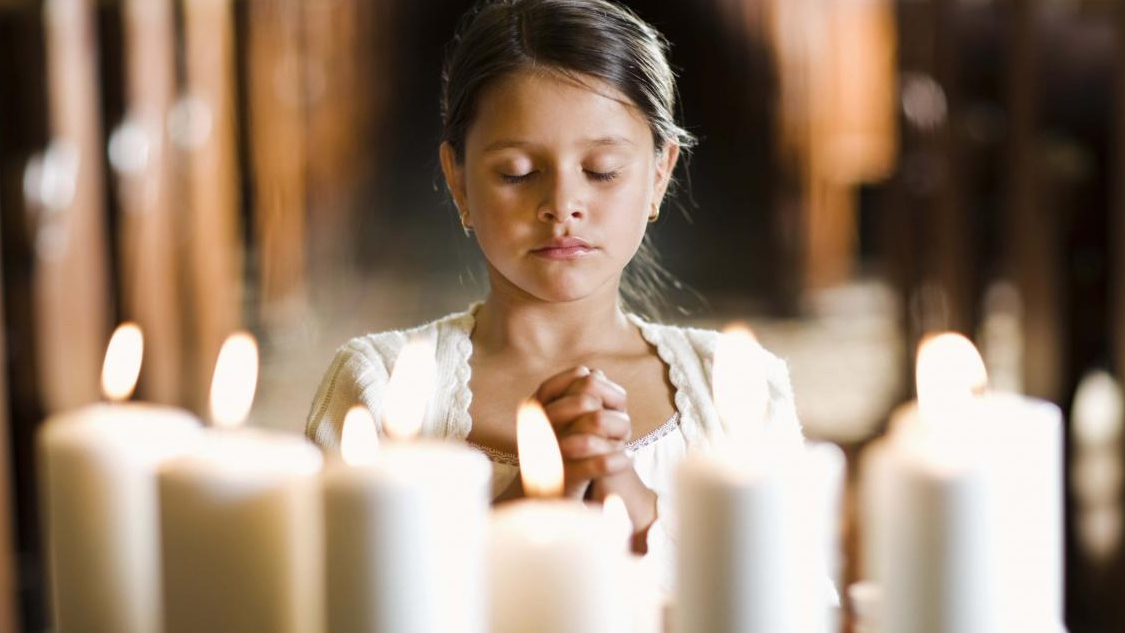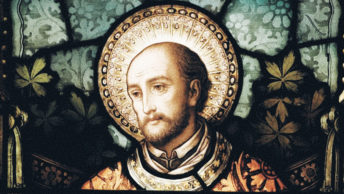Spiritual direction has been a godsend for me. In studying Ignatian spirituality and spiritual direction I’ve come to understand “me” better that at any time before in my life. The spiritual tools available enable us to stand against the tide of secularism in our society. More importantly, it has given me the means to understand how empty and unfulfilling a life without Christ would be. Only now do I fully understand how Jesus came to set us free.
That is the good side of today’s spirituality. As with everything these days, we also must be weary of the dark side.
What could be a “dark side” to spirituality? Simply, when it is used to move us away from the magisterium and true faith of our Church. Spirituality is not meant to be Gnosticism – secret knowledge for an enlightened few. John of the Cross did not show us a “new” way. He helped explain and made relevant the confusion in the old.
Which brings me to Richard Rohr, OFM. Fr. Rohr has been called “one of the most popular spirituality authors and speakers in the world.” I agree and would jump at the chance to have him as my spiritual director. His work has enlightened millions and though I don’t follow his professed “orthopraxis,” I also am not challenged by a belief that lifestyle and practice are much more important than mere verbal orthodoxy. Rohr’s message of God in union with all things I take to heart in an Ignatian tradition that promoted it five centuries before him. Rohr’s assertion in The Divine Dance that God “holds both the masculine and the feminine together” is not a new reading of the Book of Genesis. His promotion of the dignity of LGBTQ people is straight from the Catechism. Fathers Rohr and James Martin, S.J. just need to reread the section on intrinsically disordered acts. For the most part, I don’t see Rohr as that controversial.
In that spirit, a group from the Ignatian Associates and I decided to go listen to Rohr speak on his new book The Universal Christ. Because of his age and health concerns, Rohr does not travel much anymore. We planned to listen to him via a video conference at the Portiuncula Center for Prayer in Frankfort, IL. I don’t know which excited me more – going to see Rohr “in person” or visiting the motherhouse for the Franciscan Sisters of the Sacred Heart that I used to drive by as a teenager but have never stopped in and visited.
Prior to his talk, I heard Fr. Rohr’s interview with Cardinal Dolan on satellite radio. When first speaking of his book at the video conference and saying his work was not challenged by a “conservative Cardinal,” I understood his reference. The theology in The Universal Christ is again not that new. Seeing “God in all things” is what Ignatius taught and Pierre Teilhard de Chardin put him in the cosmos. Rohr promotes that “God’s DNA” is in everything.” As a scientist, I like his spin!
Maybe it was his age or his casual style, but after that Rohr lost me. Rohr began to talk of “the bread” from Mass. In his statements, Rohr said that since “God’s DNA is in everything” then on a Sunday morning when people don’t feel like getting up and going to Church that we should just “go for a walk in nature” and see God’s DNA there. What? Was this Fr. Rohr who admittedly presided at Mass that morning or did our video lines get crossed with a signal from Billy Graham? Rohr got my full attention at this point in his talk. I wanted to make sure I heard what I thought I heard. Ugh. I did.
I wanted to get up during the Q&A session to ask why he even bothered to preside at Mass that morning. I didn’t. Finally, after 55 years on this earth I am beginning to fight my fist impulse. I was in a room full of spirituality groupies; I knew they carried stones for conservatives like me… Still, the damage was done. I would have “bet the house” people in that audience felt justified now not setting their alarms that following Sunday.
Seriously, why should a deacon have to remind a priest with a master’s degree in theology from the University of Dayton that this casual reference to a piece of “bread” was really pointing to the body, blood, soul and divinity of Jesus Christ? Must I remind him that God’s gift of giving us himself (ok, “herself” for the groupies) and being present for the representation of Calvary is not to be taken so lightly? Be flippant, be “cool,” but do not undermine the momentous grace of being in the physical presence of the resurrected Christ in our lives. That, sir, is what you dedicated your vocation to.
No wonder that a significant shift in believing in the actual presence of Jesus in the Eucharist has been in the news lately. If we don’t live and profess this grace, how are our children going to know the difference? I don’t risk excommunication for carelessly discarding a “piece of bread” or a “drink of wine.” No, clergy and sacristans are trained to respect and hold sacred the divinity in their midst. I routinely counsel young couples looking to get married as to the seriousness as well as need to express their vows in the physical presence of God. Yes, God is “spiritually” everywhere. He is “physically” present at Mass and in the tabernacle. Our lives need to lose this academic “knowing” and replace it with a faithful living of this fundamental cornerstone of our faith.
There is nothing casual about the Eucharist. It certainly is not replaced by a casual walk in the beauty of God’s creation.
Spirituality loses its ministry when it does not lead us back to the sacraments. Sacramentality loses its grace when it no longer engages our lives. We are a Church of “both/and!” Spirituality should lead us to “Faith Without Works Is Dead.” (James 2:14-26) Specifically, if our sense of Spirituality that is engaged in the writings of Rohr and his contemporaries is not accompanied by a call to action and a return to the sacraments then our prayer is meaningless. Accordingly, actions or works done without faith are not for God but for ego.
Perhaps that was Fr. Rohr’s master plan. At least I hope it was. His talk had me stewing for at least a week. It was actually less “stewing” and a great deal of discernment. I laughed at this notion. If true, it was masterful spirituality. Spirituality is spending time reflecting on God acting in our lives. If you are like me, we haven’t spent much time in our adulthood discerning this. We were spending too much time living it. Yet, that is exactly where our fear, emptiness, ego and unhappiness creeps in. We think we are finding joy and then often find out too late the endeavor that engaged us was meaningless in the long run. The greatness in Catholic spirituality is learning to spend time reflecting on the paths we have chosen. This reflection will always show us that we were never abandoned by God. His presence in our lives is always apparent in hindsight. Spiritual reflection helps us to see God in today, not just yesterday. If there was a walking away, it was us who did the leaving. Fortunately, God always is ready and desiring our return.
Let us take a walk in nature and admire God’s “DNA” in everything. Embrace that sense of the sacred. Note the joy we feel. Hug a tree if we must. However, let us never forget to set the alarm on Sunday morning and give thanks for our joy in the physical presence of the body, blood, soul and divinity of our Savior. Amen!








